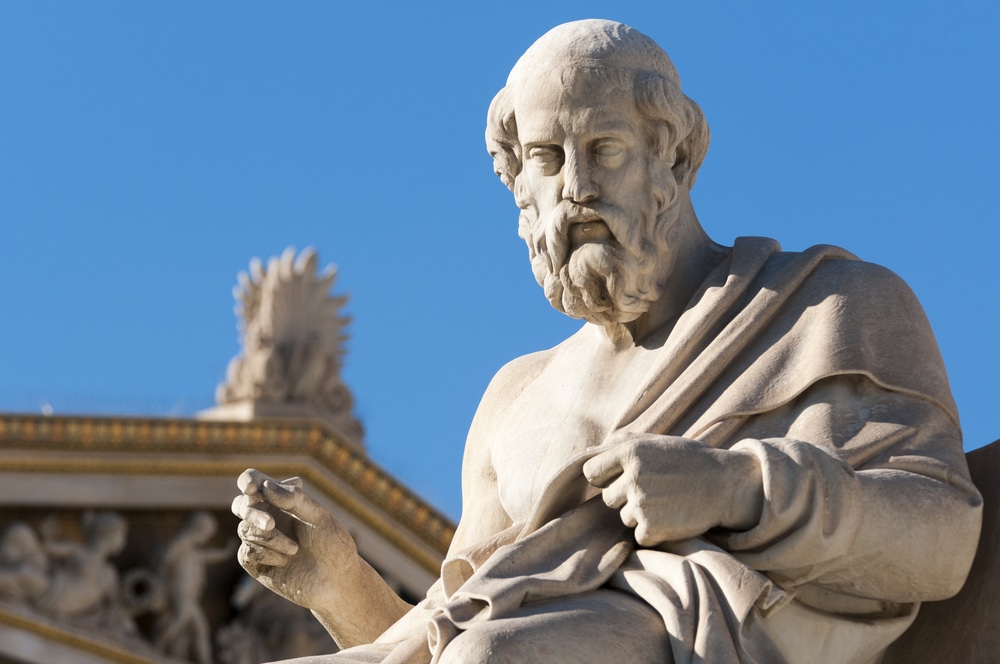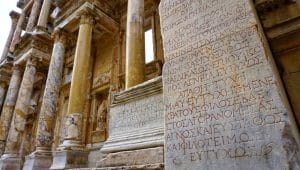Polis – The Jerusalem Institute of Languages and Humanities: A Journey of Discovery
Diving into the world of language and humanities, the Polis Institute – The Jerusalem Institute of Languages and Humanities stands out as a beacon of knowledge and cultural exploration. Located in the historic and culturally rich city of Jerusalem, this institute offers more than just an education; it’s a gateway to a world where ancient texts and modern perspectives intersect. For high school students, understanding what the Polis Institute is about isn’t just about future academic choices; it’s a journey into diverse cultures, languages, and histories that have shaped our world.
This blog post aims to show the unique aspects of the Polis Institute. We will explore the variety of courses it offers, the vibrant life on its campus, and why it’s a sought-after destination for students globally. Additionally, we will provide a straightforward guide on the application process, revealing how to get in, the challenges you might face, and important deadlines. If you’re intrigued by the prospect of studying languages and humanities, or if you’re just starting to explore your academic options, this post is your compass to navigating the Polis Institute’s offerings. Let’s begin this educational journey together.
Understanding the Polis Institute
What is the Jerusalem Institute of Languages and Humanities?
Founded in 2011 by a group of international scholars, Polis – The Jerusalem Institute of Languages and Humanities stands as a beacon of academic excellence and cultural understanding. The institute was born from a vision to renew the study of Humanities, focusing particularly on literature, philosophy, history, and geography of the Mediterranean basin and the Middle East. At its core, Polis is driven by a mission to revive the languages that form the bedrock of Western civilization.
The institute’s goal transcends traditional academic pursuits. It is rooted in the belief that learning from the past is crucial for building mutual respect and understanding among different cultures and peoples, particularly in the Middle East and Western Civilization. This conviction underlines the importance of dialogue and respect for diverse identities, fostering an environment of learning that contributes to long-term peace and global understanding.
What is the Polis Method?
The Polis Method is a fresh and dynamic approach to learning languages, particularly ancient ones, for which the Polis Institute has become renowned. So, what’s it all about? Let’s break it down.
First off, the Polis Method is based on full immersion. This means that from day one, you start speaking the language you’re learning. Think of how you learned your native language as a child. You listened, you repeated, and you used the language every day. That’s the core idea behind immersion — it’s learning by doing. At Polis, there are no back-and-forth translations. Instead, you think and express yourself in the new language right away.
Next up is the communicative approach. The Polis Method believes that interaction is key to learning. You won’t just be sitting and listening to a teacher talk to you. You’ll be part of conversations, games, and activities that make you use the language in practical situations. It’s about engaging with the language, not just memorizing it.
Another big part of the Polis Method is the use of context. This means that you learn words and grammar as part of phrases and sentences that make sense in real-life situations. You won’t just be learning lists of vocabulary and rules of grammar in isolation. Instead, you’ll understand how everything fits together in the real world.
Physical response is also a crucial element. This involves a lot of hands-on activities where you physically respond to commands or situations in the language you’re learning. It helps you to remember better because you’re not just using your mind; you’re involving your whole body.
Now, let’s talk about the role of teachers in the Polis Method. Teachers are more like guides. They create situations where you can use the language and help you navigate through the learning process. They’re there to support you, give you feedback, and help you improve. They won’t just give you the answers; they’ll encourage you to find them yourself.
One of the coolest things about the Polis Method is that it takes into account the latest research in linguistics and cognitive studies. It’s not just about traditional methods; it’s about using what science tells us about how our brains learn languages best.
The Polis Method is also very flexible. It can be used for a variety of languages, not just ancient ones. And it works for people at all levels, whether you’re a beginner or someone who’s already advanced in the language.
In the end, the Polis Method is about making language learning natural, fun, and effective. It’s about breaking down the barriers between you and the language so you can learn it as naturally as possible. At the Polis Institute, they believe that anyone can learn a new language, and with the Polis Method, they make that belief a reality.
So, if you’re considering learning a new language, especially an ancient one, and you want to do it in a way that’s lively, interactive, and based on how people naturally acquire language, the Polis Method might be what you’re looking for. It’s a way of learning that’s rooted in the past but perfectly designed for the modern world.
Programs Offered
At Polis, the diversity and depth of its program offerings are a testament to its commitment to a comprehensive study of languages and humanities. The institute’s flagship academic programs in Jerusalem provide students with the opportunity to immerse themselves in a range of disciplines over the course of one or two years. These programs are designed to delve into the languages and cultures that have significantly shaped both Western and Middle Eastern civilizations, offering insights into their historical, literary, and philosophical underpinnings.
In addition to the year-long programs, Polis also offers intensive language courses twice a year, in the fall and spring. These four-month courses are tailored for those looking to make significant progress in language proficiency within a short period. During the summer, the institute hosts shorter yet equally intensive language courses, perfect for students who wish to utilize their break for academic advancement.
Here are some of the programs being offered at Polis
- Ancient Philology – One-Year Program
This one-year course serves as the entry point to the two-year Ancient Philology program, diving deep into Ancient Greek and Biblical Hebrew. You’ll be submerged in both languages, reaching a level where you’ll rarely need a dictionary to understand moderate narrative texts.
Beyond language, the program includes linguistics, philosophy, and more, with some classes taught in Ancient Greek. If you’re only looking to study for a year, that’s an option too. This course is perfect for those aiming to teach these ancient languages or delve into classical studies, religious history, or the link between Greek and Judeo-Christian cultures.
- Certificate in Second Language Teaching Methodology
Aimed at language educators, this year-long program enhances teaching skills, particularly for immersive language courses. It encompasses Second Language Acquisition theory and practical application of the Polis Method in your teaching language. It’s ideal for those wanting to hone their teaching strategies.
- Fluency in Ancient Greek
Targeting undergrads, grads, teachers, and scholars, this program promises a journey from beginner to proficient in Ancient Greek. You’ll have the opportunity to take extra courses related to Ancient Greek culture.
- Fluency in Arabic
For students and professionals across fields, this program offers a comprehensive path to mastering Spoken and Modern Standard Arabic, with cultural courses to complement language learning.
- Historical Geography (Field Trips) – FALL 2024
This course offers a primer in the history and geography of the Holy Land through field trips, ideal for Humanities students. It’s a hands-on look at the blend of Semitic and Hellenic cultures and the shift from classical to Islamic civilization.
- Near Eastern Languages – One-Year Program
This program is the first leg of a two-year journey in Near Eastern Languages, focusing on Arabic and Hebrew. It’s full of intensive language immersion and courses in history, philosophy, and literature, with some classes in Arabic or Hebrew. It’s designed for those fascinated by the Near East’s languages, history, and religions, including Eastern Christianity, Judaism, and Islam.
- Ancient Philology – Third-Party Accredited MA
This two-year advanced program focuses on Ancient Greek and Biblical Hebrew, with intensive language immersion. Students will study linguistics, philosophy, and more, which is ideal for those looking to teach or engage in scholarly study of antiquity and its connection to Judeo-Christian heritage.
- Fluency in Hebrew
Open to students and academics, this program leads to mastery in Biblical and Modern Hebrew. In the second year, you can specialize in either. Additional courses related to Hebrew culture are available.
- Near Eastern Languages – Third-Party Accredited MA
A two-year program in Near Eastern Languages with intensive Arabic and Hebrew language courses, along with history, philosophy, and literature. It’s for those interested in Semitic studies, journalism, or history.
- Classical Philology – One-Year Program
Focusing on Ancient Greek and Latin, this one-year program offers full immersion in both languages. It’s designed for those aiming to teach or study classical languages, philosophy, or history, with a practical understanding of the texts in the original languages.
While the Polis Institute does not hold university accreditation, it has established partnerships with several high-ranking European universities that acknowledge the caliber of its two-year graduate programs as comparable to a Master’s of Arts Degree from their institutions.
For instance, students who complete the Two-Year Academic Program in Ancient Philology at Polis have the opportunity to enroll at the International University of Catalonia in Barcelona, Spain. Upon meeting the necessary requirements there, they can obtain a Master’s of Arts Degree in Ancient Philology.
In a similar arrangement, those who finish the Two-Year Academic Program in Near Eastern Languages at Polis can register at the University of Navarra in Pamplona, Spain, and may receive a Master’s of Arts Degree in Near Eastern Languages. It is important to note that the European Credit Transfer and Accumulation System (ECTS) credits are conferred by these partner universities and not by Polis itself.
Moreover, recognizing the importance of a global perspective, Polis extends its reach beyond Jerusalem. Since its inception, the institute has established connections with academics and institutions worldwide, fostering a network that supports its international and online programs. These collaborations have enabled Polis to offer a variety of programs in locations around the world, making its unique educational approach accessible to a broader audience.
Through these international programs, students from different parts of the globe can experience the Polis method of learning, which combines rigorous academic study with practical, immersive language experiences.
Faculty and Teaching Philosophy
The faculty at Polis consists of scholars who bring international expertise and a passion for teaching. Their academic backgrounds are as diverse as the subjects they teach, ensuring that students receive a rich and varied educational experience. These educators are not just imparting knowledge; they are instilling a sense of curiosity and a desire to understand the intricate tapestry of human culture and history.
The teaching philosophy at Polis is centered on the idea that true understanding comes from engaging directly with the subject matter. This means that language courses are taught with an emphasis on active use and immersion, allowing students to experience the language as it is naturally spoken and used. In humanities courses, the approach is similarly interactive, encouraging students to explore the connections between past and present and between different cultures and civilizations.
Overall, Polis – The Jerusalem Institute of Languages and Humanities offers a unique and enriching educational experience. Its commitment to reviving the languages and cultures at the heart of Western and Middle Eastern civilizations, combined with its goal of fostering mutual understanding and respect, makes it a distinguished institution in the field of humanities and language studies. Here, students embark on a journey of discovery, where learning from the past paves the way for a more harmonious and peaceful future.
Location and Campus Life
Where is the Jerusalem Institute of Languages and Humanities Located?
Polis – The Jerusalem Institute of Languages and Humanities is not just about what you learn; it’s also about where you learn. Located in the heart of Jerusalem, a city steeped in history and culture, the campus stands as a bridge between ancient traditions and modern academic pursuits. The physical facilities of Polis are designed to enhance the learning experience, offering a blend of historical ambiance and contemporary amenities.
The institute’s buildings reflect the architectural heritage of Jerusalem, with stone walls that echo the city’s ancient roots. Classrooms are equipped with modern educational tools, ensuring that students have access to the resources they need for effective learning. The library at Polis is a treasure trove of knowledge, housing a vast collection of texts in various languages, including rare and ancient manuscripts. This unique setting not only provides a conducive environment for academic study but also immerses students in the very essence of the subjects they are studying.
Campus Culture
The culture at Polis extends beyond its academic programs. It’s a place where students from diverse backgrounds come together, creating a vibrant and inclusive community. Life at Polis is about more than just attending classes; it’s about being part of a dynamic cultural and intellectual exchange.
Extracurricular activities play a significant role in campus life. Students have the opportunity to participate in language clubs, cultural workshops, and discussion groups, which allow them to practice their language skills and deepen their cultural understanding in a relaxed, social setting. These activities are not only fun but also enhance the overall educational experience by providing practical applications of classroom learning.
Cultural events are a regular feature on campus. These include guest lectures, film screenings, and cultural festivals that celebrate the rich heritage of the regions studied at the institute. Through these events, students gain a broader perspective of the world and an appreciation for the diversity of human cultures. Additionally, being in Jerusalem, students have the unique advantage of experiencing firsthand the city’s historical sites, museums, and cultural landmarks, further enriching their understanding of the subjects they study.
The campus of Polis – The Jerusalem Institute of Languages and Humanities is more than just a physical space; it’s a vibrant community where learning and cultural exploration go hand in hand. With its blend of historical charm and modern facilities, coupled with a rich tapestry of student activities and cultural events, Polis offers an educational experience that extends far beyond the classroom walls. For students seeking an immersive academic journey in the heart of one of the world’s most historic cities, Polis provides the perfect backdrop.
Why Should You Go to the Jerusalem Institute of Languages and Humanities?
Educational Benefits
Choosing the Polis Institute is not just a decision about where to study; it’s about shaping your future with a quality education that stands out. The institute’s approach to learning is unique, focusing on immersive experiences that go beyond traditional classroom teaching. Here, students are not just passive listeners; they are active participants in their education. This method ensures a deeper understanding and retention of knowledge, making the learning process both effective and enjoyable.
The quality of education at Polis is exceptional, with programs that are carefully designed to cater to various learning styles. The faculty, comprising experienced and passionate educators, ensures that each student receives personalized attention. This tailored approach helps students to excel academically and develop critical thinking skills, essential for success in any field.
The Institute uses the Polis Method- a special way of teaching second languages that is both simple and effective. Students get the advantage of the institute’s ongoing research, which continuously enhances the Polis Method. To make sure the learning experience is complete, classroom teachings are supported by unique textbooks developed and published by Polis itself. This combination ensures that students not only enjoy learning new languages but also find it easy to grasp and apply them.
One of the unique aspects of studying at Polis is the emphasis on language immersion. Students learn languages not only through textbooks but also by engaging in real-life conversations and cultural interactions. This practical approach equips students with language skills that are valuable in today’s globalized world. Moreover, the humanities courses offer a comprehensive understanding of different cultures and historical contexts, providing students with a well-rounded education.
Career Opportunities
A degree from the Polis Institute opens a multitude of career opportunities. The skills learned here are transferable to many fields, making graduates highly sought after by employers. For those interested in language-related careers, such as translation, interpretation, or teaching, Polis provides a strong foundation in both ancient and modern languages. The intensive language programs ensure that students graduate with a high level of proficiency, a key advantage in language-focused professions.
However, the benefits extend beyond language careers. The broad humanities education fosters analytical and critical thinking skills, which are valuable in any professional setting. Graduates find opportunities in various sectors, including international relations, journalism, academia, and cultural organizations. The institute’s focus on cross-cultural understanding also prepares students for roles in global organizations, where an appreciation of diverse cultures is essential.
Cultural Experience
Studying at the Polis Institute is not just about academic growth; it’s also a cultural journey. Located in Jerusalem, the institute offers a unique cultural experience that significantly contributes to personal development. Jerusalem is a city like no other, rich in history, religion, and culture. Living and studying in this city allows students to experience the cultural diversity that is integral to the institute’s educational philosophy.
Jerusalem’s cultural richness enhances the learning experience at Polis. Students have the opportunity to visit historical sites, museums, and cultural landmarks, which bring their studies to life. These experiences provide a deeper understanding of the subjects being studied and foster a sense of global citizenship.
Moreover, the cultural exposure gained at Polis helps in developing a broader worldview. Students learn to appreciate and respect different perspectives, an important skill in today’s interconnected world. This cultural sensitivity is not just beneficial for personal growth but is also highly valued in the global job market.
Choosing the Polis Institute is a decision that offers numerous benefits. The quality of education, combined with unique learning opportunities, prepares students for a successful future. The career prospects for Polis graduates are diverse and promising, thanks to the comprehensive skills they acquire.
Additionally, the cultural experiences gained in Jerusalem play a crucial role in shaping well-rounded, globally aware individuals. For students seeking an educational journey that is academically enriching and culturally immersive, the Polis Institute is an excellent choice.
Admission Process
How to Get Into the Jerusalem Institute of Languages and Humanities
Getting into the Polis Institute starts with understanding the eligibility criteria, which are the basic requirements every student must meet to apply. First and foremost, a high school diploma or equivalent is a must. This shows you’ve completed the necessary foundation of education to move on to higher studies. Additionally, since the courses at Polis involve intensive language and humanities studies, having a strong interest or background in these areas can be beneficial.
Students who are interested in graduate-level education can pursue programs in Ancient Philology and Near Eastern Languages. Polis also offers Fluency programs that are geared towards mastering a particular language using the Polis Method.
For students interested in language courses, Polis offers a variety of ancient and modern language courses at the heart of Jerusalem. All courses are taught using the Polis Method, where students are immersed in the target language. The Institute offers Spring and Fall admissions and Summer and September Intensives.
Language proficiency is another key factor. If you’re applying for a program taught in a language other than your native tongue, you may need to demonstrate a certain level of proficiency in that language. This could be through standardized language tests or prior coursework. However, for beginners’ language courses, this might not be a requirement.
How to Apply to the Jerusalem Institute of Languages and Humanities
The application process for the Polis Institute is straightforward but requires attention to detail. Here’s a step-by-step guide to help you navigate it:
- Fill Out the Application Form: Start by completing the online application form, which you can find on Polis Jerusalem’s application page.
- Letter of Motivation: Write a letter explaining why you want to join the program and what makes you a good fit for it. This is your chance to show your passion and commitment.
- Letters of Recommendation: You need two of these. At least one should be from someone who knows your academic abilities, like a teacher or professor.
- Academic Transcripts and Diploma: Submit a copy of your Bachelor’s diploma or equivalent, along with a description of the courses you took and your official transcripts. If you have other relevant academic records, include those too.
- CV or Résumé: Provide a summary of your education, skills, and any work or volunteer experience you have.
- Passport Copy: You’ll need a copy of the main page of your passport. If you have any Israeli stamps, include those pages as well.
- Passport Photographs: Attach two recent passport-sized photos with your application.
Selection Criteria
The Polis Institute looks for students who are not only academically qualified but also genuinely enthusiastic about their chosen field of study. Your motivation letter and letters of recommendation are crucial in showing your interest and suitability for the program.
Additional Information
- Early Registration Deadlines: For full-time programs, the deadline is June 1, 2023, and for summer courses, it’s June 14, 2023.
- Tuition Fee: The full-time tuition fee is 38,000 ILS. There are discounts available – 8,000 ILS for self-financed students and 2,000 ILS for early registration.
- Living Expenses: Remember, you are responsible for your own living expenses. In Jerusalem, this could be between 1,500 and 2,000 USD per month.
- Visa Requirements: If you’re coming from another country, you might need an Israeli visa. The Polis Institute will help accepted students with this process.
Applying to the Polis Institute is a significant step towards an enriching educational journey. By following these steps and meeting the selection criteria, you can embark on this exciting academic adventure.
Application Challenges and Deadlines
How Hard is it to Get Into the Jerusalem Institute of Languages and Humanities?
The Polis Institute is known for its rigorous academic environment, and as such, securing a spot can be quite competitive. They’re on the lookout for students who demonstrate a strong academic background, a clear passion for languages and the humanities, and a readiness to engage with the institute’s vibrant cultural setting.
To make an application stand out, a student should shine a light on their unique qualities and experiences. A standout application often includes a well-articulated motivation letter, showcasing a personal commitment to the subject matter and a compelling vision for how attending Polis will shape the applicant’s future.
When is the Deadline to Apply to the Jerusalem Institute of Languages and Humanities?
Key dates are non-negotiable checkpoints on the path to admission. For those eyeing full-time programs at Polis, the deadline to keep in mind is June 1, 2023. This is the date by which all your documents, essays, and forms should be submitted. If summer courses pique your interest, then you have a bit more time until June 14, 2023. These deadlines are not just about submitting your application; they’re about giving yourself enough time to put together a thoughtful and comprehensive package that represents your academic and personal journey accurately.
When Do I Find Out About My Application to the Jerusalem Institute of Languages and Humanities?
Once the application is submitted, applicants find themselves in a period of anticipation. Polis Institute typically takes a few weeks post-deadline to review applications thoroughly. During this time, it’s important for students to remain patient and optimistic.
Applicants can generally expect to receive a notification regarding their admission status via email or through the application portal they used to apply. The institute prides itself on a transparent and communicative admissions process, so students will be kept informed as their applications move through the various stages of review.
In the competitive world of academic applications, the Polis Institute stands out for its commitment to selecting students who are not only academically prepared but also ready to contribute to and grow from the institute’s unique learning environment.
Remembering key application deadlines and anticipating the notification timeline are crucial steps in the application journey. Good preparation and patience are your best allies as you await the decision that might just be the gateway to an enriching educational experience at the Polis Institute.
Financial Considerations
Tuition and Fees
When planning to study at the Polis Institute, it’s important to understand the financial commitment you’re making. For full-time programs, tuition is set at 38,000 ILS. This fee covers the core costs of your education, including classes, access to institute resources, and support services.
It’s also worth noting that there are discounts available that can reduce this cost. If you’re financing your studies without institutional support, you can get a discount of 8,000 ILS. Moreover, if you apply early, you can benefit from an additional discount of 2,000 ILS. Keeping track of these potential savings can significantly lower your expenses.
Scholarships and Financial Aid
Navigating through financial aid options can be as crucial as academic preparation. The Polis Institute understands this and offers several financial support options to help manage the cost of your education. Details about specific scholarships and grants are typically provided upon admission or can be found on the institute’s official website.
For students entering the Polis Institute, there are several financial support options to help with tuition costs for the MA, One-Year, or Certificate programs.
Hierosolyma Scholarship
The Hierosolyma Scholarship offers a tuition reduction of 13,000 NIS for one academic year. Recipients of this scholarship commit to 10 hours of volunteer work weekly throughout the academic year. To qualify, applicants must be enrolled or starting the application process for the MA, One-Year, or Fluency program at Polis. A writing sample is required after submitting the initial application. The deadline for this scholarship is March 15, 2024, and adherence to the General Requisites of the Grant Fund is mandatory.
Origen Scholarship
Origen provides a 7,500 NIS tuition discount for one academic year, requiring recipients to engage in 7 hours of volunteer service per week. Similar to Hierosolyma, applicants must be pursuing or applying for the MA, One-Year, or Fluency program at Polis and submit a writing sample post application. The application deadline is March 15, 2024, and the General Requisites of the Grant Fund apply.
Plato Scholarship
The Plato Scholarship is a tuition discount of 18,500 NIS for one academic year, with a commitment to 12 hours of volunteer work weekly. Eligibility and application requirements are consistent with the Hierosolyma and Origen scholarships, including the submission of a writing sample and adherence to the Grant Fund Requisites. The deadline for application is March 15, 2023.
Scholarship Regulations
All scholarships are designed to support the institute’s objectives, and each comes with specific criteria. To apply, candidates must submit a completed application form along with a motivation letter by the respective scholarship deadline. The selection criteria for each scholarship are outlined in the call for applications. Successful candidates will need to accept the scholarship offer formally.
Scholarship recipients are expected to complete the full academic program. If a student withdraws or fails to meet the scholarship or program requirements, they may be subject to a penalty unless there are extenuating circumstances approved by the Board. Scholarships are contingent upon the student’s academic and volunteer performance in the initial semesters. Requirements include maintaining a minimum average grade, completing all course credits, and fulfilling volunteer hours and tasks as assigned.
In summary, the Polis Institute offers valuable scholarships to support students financially through their academic journey. These scholarships not only help with tuition costs but also encourage community engagement through volunteer work. With clear prerequisites and deadlines, students have the opportunity to make their higher education goals more affordable.
Student Support and Resources
Academic Support
At the Polis Institute, student success is a top priority, and this is reflected in the robust academic support services offered. Whether you’re grappling with complex language structures or seeking guidance on how to approach your humanities research, the institute has a range of resources to help you excel.
Tutoring services are readily available, providing one-on-one or small group assistance to students who need extra help outside of class hours. These sessions are particularly helpful for reviewing material covered in lectures, clarifying difficult concepts, and preparing for exams.
Language support is another cornerstone of the Polis Institute’s educational approach. Given the institute’s focus on language acquisition, dedicated language labs and conversation practice sessions are often part of the support framework. These resources are invaluable for students looking to enhance their fluency and comprehension skills in a new language.
Additionally, academic advising is a service that helps students navigate their academic journey effectively. Advisors are available to assist with course selection, understanding graduation requirements, and providing advice on how to balance academic workload with other commitments.
Student Life and Welfare
Student life at Polis is about more than academics; it’s about ensuring you have a supportive and enriching environment in which to learn and grow. The institute places great importance on the well-being of its students and offers a variety of resources aimed at promoting a healthy, balanced lifestyle.
Counseling services are a key component of student welfare. Professional counselors are available to provide support for personal, academic, or social concerns. Whether students are facing challenges related to stress, time management, or adapting to a new culture, these services are there to offer guidance and support.
Health services are also an essential part of the support system, ensuring that students have access to medical advice and care when needed. While the institute may not have a full-fledged medical facility on campus, arrangements are in place to ensure students can access local healthcare providers promptly.
In all, the Polis Institute is dedicated to providing a comprehensive support system that caters to the academic and personal needs of its students. From tutoring and language support to counseling and health services, the institute is committed to fostering an environment that supports students’ success and well-being. For those studying away from home, these resources are particularly vital, ensuring that every student has the support they need to thrive both in and out of the classroom.
Final Thoughts
The Polis Institute- The Jerusalem Institute of Languages and Humanities stands as a remarkable educational venue where languages and humanities are not just taught but are brought to life through immersive experiences. With its competitive yet welcoming admissions process, Polis offers students from around the world the chance to delve into the depths of ancient and modern languages and cultures, all within the historic and culturally rich city of Jerusalem.
We’ve navigated through the practical steps of applying to Polis, from understanding eligibility criteria to preparing for the specific documents and deadlines. We’ve also shed light on the institute’s selectiveness and what makes an application shine. The financial aspect, often a significant concern, is addressed through various scholarships and aid that make the dream of studying at Polis attainable for many.
Moreover, the institute’s commitment to student success is evident in its comprehensive support services, including tutoring, language labs, and wellness resources. These provisions ensure that every student has the tools and support necessary to achieve their academic goals and maintain a balanced life.
Reflecting on the journey through this blog post, it’s clear that education in languages and humanities holds immense value. It equips students with the ability to communicate across cultures, think critically about human society, and engage with the world in meaningful ways. The Polis Institute fosters an environment where this kind of education is not just a dream but a reality.
As we conclude, all prospective students are encouraged to take that leap of curiosity. Visit the Polis Institute’s website, reach out to the admissions office, and dive deeper into what this unique educational institution can offer you. Whether it’s by exploring further the courses available, the cultural experiences, or the financial aid options, take the next step towards enriching your academic and personal life. Remember, the world of languages and humanities is not just about studying the past; it’s about shaping the future. And at Polis, your future is waiting to be written.
If you need assistance with the final touches on your college applications, look no further. At AdmissionSight, we boast over a decade of experience guiding students through rigorous admissions.
Allow AdmissionSight to help you showcase your best when submitting your college applications this fall. Reach out to us today to learn more about our services.














































